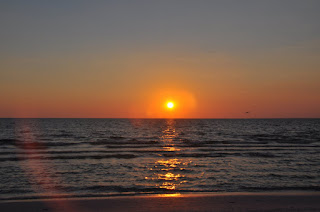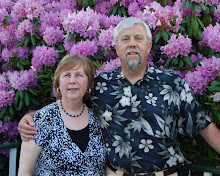 In the book of the Prophet Isaiah at the end of the 40th chapter you will find this amazing promise ... "Yet those who wait upon the Lord will gain new strength; they will mount up with wings like eagles, they will run and not get tired, they will walk and not get weary ..."
In the book of the Prophet Isaiah at the end of the 40th chapter you will find this amazing promise ... "Yet those who wait upon the Lord will gain new strength; they will mount up with wings like eagles, they will run and not get tired, they will walk and not get weary ..." It is a familiar verse to all of us who held our breath during the movie Chariots of Fire and marvelled at Eric Liddel's faith and fire. Everyone of us who has ever laced up running flats has hoped for that renewal as we approach "the wall."
This morning in church we experienced that renewal.
Sometimes the Lord chooses to sovereignly intervene in His house, to speak to His church, and to refresh His people. Today was such a day. Pastor never preached; we didn't do announcements, and we just barely had a collection. But we had CHURCH. This morning there were calls to repentance, calls to obedience and calls to seek His presence.
I love pentecost because we admit that God still rules in His house and the gifts of the Holy Spirit remain a part of the life of the church as well as a part of its history. Our altars were filled with those who wanted to experience more of God and were not content with anything less than all that God has for His children. I cannot wait to see what the Lord will do next.
I could not help but wonder if this was a taste of the great and marvelous things that He has in store for us. I imagine John the Baptist heading out to the desert knowing only that he was called to be the forerunner of the Christ and to prepare the way. He could not have known all that would come to pass, but he boldly proclaimed that the Kingdom was at hand. I am convinced that the Lord reveals just enough to give His people boldness if they will trust him for the next step.
I hope that what we experienced this morning is the forerunner of greater grace and a wave of revival. It is marvelous in this season when we remember and celebrate the birth of the baby Jesus to anticipate a renewing work in His church. Nothing would honor the Incarnation more than the church which He died to create becoming that shining city on a hill.









